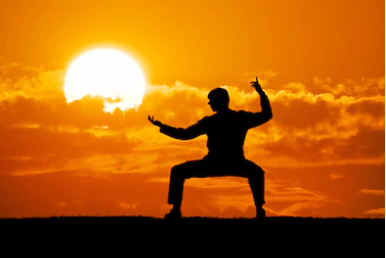Exercise, meditation and relaxation have all been shown to have immense benefits for the brain’s physical health. For an aging population, these benefits translate into better memory and recall, improved cognitive function and a generally better mood and more positive outlook. Tai Chi is unique in the way it unites these three into a single practice, therefore, Tai Chi supports the physical Health of the brain in aging adults .
Being a form of exercise, meditation and relaxation, Tai Chi would seem to provide a way for aging adults to gain the benefits of each. Several recently published studies suggest not only is this true, but one does not need to practice for a long time to start experiencing physical improvements in the brain.
Here are a few ways researchers have discovered Tai Chi helps the physical health of the brain:
Boosts Brain Metabolism
In a small pilot study, Harvard Medical School researchers reported Tai Chi raised levels of brain metabolites related to memory and sensory perception. The participants had not practiced Tai Chi prior to the study. It only took 12 weeks of practice for the trial participants to show “significant” improvements.[1][2]
Increases Gray Matter
It’s been long observed that the brain gets smaller as a person gets older. Tai Chi and another similar mind-body exercise called Baduanjin have both been shown to increase gray matter throughout the brain including the hippocampus, according to a study published in the Journal of Alzheimer’s Disease. In patients, this translated to better memory scores as measured through a variety of tests.[3]
A review of 11 studies further noted that trials involving neuroimaging have further shown increased cortical thickness, connectivity and high executive function in the brains of those who practiced Tai Chi.[4]
Elevates BDNF Levels
BDNF stands for brain-derived neurotrophic factor, a chemical in the brain responsible for growth and protection of brain cells, memory, and learning. BDNF plays an important role in brain metabolism, specifically in glucose regulation. Low levels of BDNF have been seen in patients with Parkinson’s and Alzheimer’s diseases.[5] In one study, researchers observed that practicing Tai Chi raises BDNF levels in the brain. In patients with mild impairment, these elevated levels were associated with better performance on memory tests and higher overall executive function. The patients in the study practiced three days per week for 6 months with an instructor.[6]
Improves Sleep to Clear Away Toxin Build-up
Getting enough sleep is vital to the health of the brain with many health problems linked to poor sleep. One way sleep supports the brain’s physical health involves toxin removal. Research shows that the human brain clears toxins, specifically beta-amyloid, during sleep.[7] Older adults who practice Tai Chi have been shown to enjoy longer, better sleep than those who do not practice.[8]
References:
- Wiley. “Tai Chi improves brain metabolism and muscle energetics in older adults, study finds.” ScienceDaily. ScienceDaily, 19 April 2018. <www.sciencedaily.com/releases/2018/04/180419100204.htm>.
- Min Zhou, Huijun Liao, Lasya P. Sreepada, Joshua R. Ladner, James A. Balschi, Alexander P. Lin. Tai Chi Improves Brain Metabolism and Muscle Energetics in Older Adults. Journal of Neuroimaging, 2018; DOI: 10.1111/jon.12515
- Tao J, Liu J, Liu W, et al. Tai Chi Chuan and Baduanjin increase grey matter volume in older adults: a brain imaging study. Journal of Alzheimer’s disease?: JAD. 2017;60(2):389-400. doi:10.3233/JAD-170477.
- Pan Z, et al. The Effects of Tai Chi Intervention on Healthy Elderly by Means of Neuroimaging and EEG: A Systematic Review. Front Aging Neurosci. 2018 Apr 18;10:110. doi: 10.3389/fnagi.2018.00110. eCollection 2018.
- Bathina S, Das UN. Brain-derived neurotrophic factor and its clinical implications. Archives of Medical Science?: AMS. 2015;11(6):1164-1178. doi:10.5114/aoms.2015.56342.
- Sungkarat S1, et al. Tai Chi Improves Cognition and Plasma BDNF in Older Adults With Mild Cognitive Impairment: A Randomized Controlled Trial. Neurorehabil Neural Repair. 2018 Feb;32(2):142-149. doi: 10.1177/1545968317753682. Epub 2018 Jan 20.
- https://www.nih.gov/news-events/nih-research-matters/how-sleep-clears-brain
- Chan AW, Yu DS, Choi K, Lee DT, Sit JW, Chan HY. Tai chi qigong as a means to improve night-time sleep quality among older adults with cognitive impairment: a pilot randomized controlled trial. Clinical Interventions in Aging. 2016;11:1277-1286. doi:10.2147/CIA.S111927.

